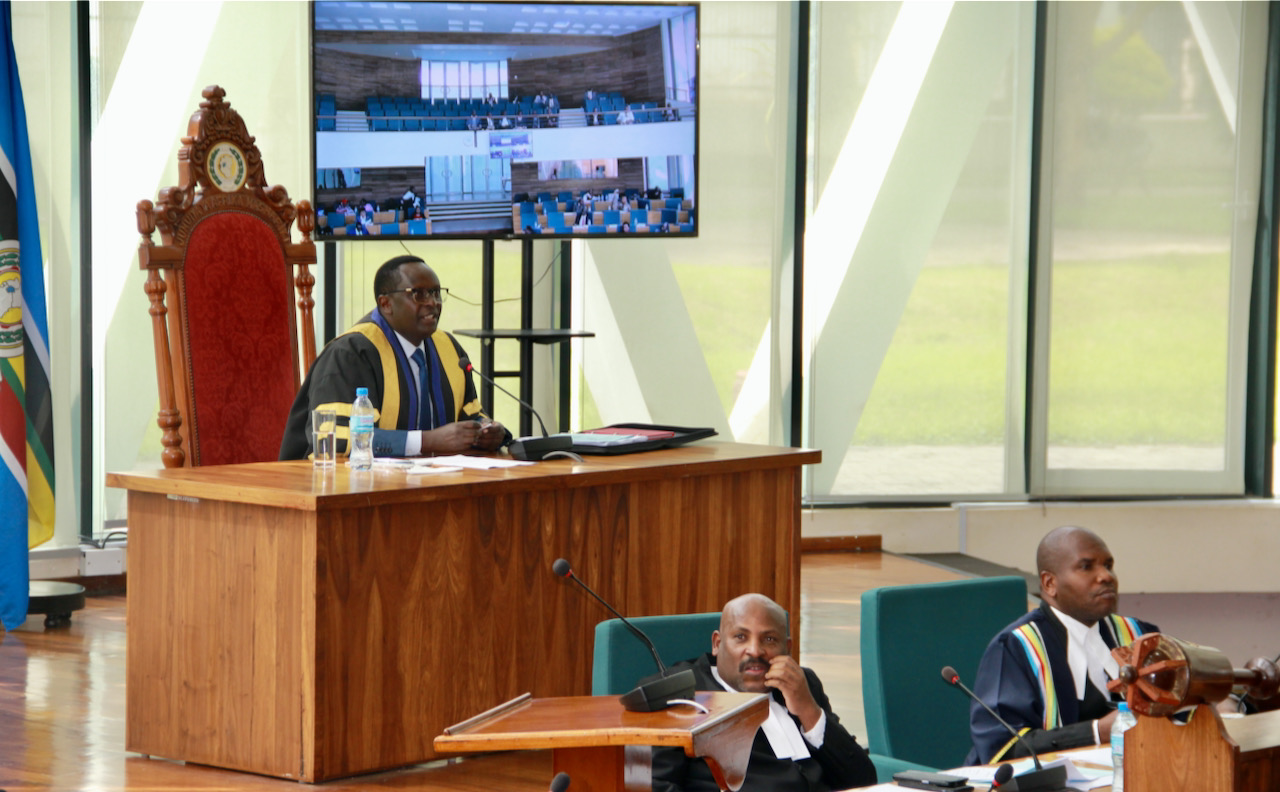“Meals insecurity and malnutrition give rise to many penalties for well being and growth with moms and youngsters being essentially the most susceptible to the devastating results.”
She highlighted the priority that meals insecurity and malnutrition put moms at better danger of dying in childbirth and of delivering low-birth-weight infants who fail to outlive infancy, subsequently, transferring the broad financial disadvantages of malnutrition in their very own lives to the subsequent era, thereby perpetuating the vicious cycle of gender inequality in accessing meals and vitamin safety.
In accordance with the 2019 world vitamin report, Weight problems and diabetes have been greater in ladies than in males throughout the EAC. Fingers put circumstances of Weight problems at 11.5 p.c and a couple of.5 p.c in Rwandan men and women, respectively. In Tanzania, ladies have been at 15.2 p.c whereas males have been at 5.0 p.c, and in Uganda, ladies at 10.4 p.c whereas males at 2.3 p.c. Kenya was at 13.4 p.c for girls and three.0 for males.
Uwumukiza famous that ladies are basic to the battle in opposition to starvation and malnutrition (as per UN SDGs 2 and 5) if given alternative and applicable means.
Proof exhibits that ladies are nearly as good as males with regards to producing meals, she famous, however a persistent gender hole in accessing key inputs – particularly land, finance and training – is noticed.
She highlighted how papers present recognition of the significance of gender mainstreaming for improved outcomes within the agricultural sector for improved meals vitamin.
For instance, Uwumukiza mentioned, in all companion states’ agricultural and meals safety coverage paperwork, gender imbalances are highlighted as key hindrances to ladies’s entry to alternatives in manufacturing, advertising, entry and management of productive sectors. On the operational stage nevertheless, the recognized challenges to ladies’s entry to land, credit score, data, advertising, and others haven’t but been addressed successfully by numerous programmes at regional and companion state ranges.
Supporting the movement, MP Anne Leonardo Itto (South Sudan) make clear delicate variations between issues men and women do, that quantity to discrimination.
One such delicate distinction is the standard grinding mill utilized by ladies to make ground in rural communities.
Itto mentioned: “This type of work stops ladies from collaborating, stops ladies from earning profits, stops ladies from reaching vitamin and meals safety. Till we perceive the delicate variations that undermine gender equality we’ll by no means be capable to tackle problems with gender inequality.”
Unpaid work is a really huge downside
Lawmakers are additionally urging companion states to place in place applicable measures to deal with gender-based restrictions to agricultural land and different productive sources, to place an finish to the prevailing discriminatory socio-cultural norms “together with meals taboos pressured on ladies and women” and promote optimistic and equal gender norms on the family and group stage.
It’s a matter of dedication, Itto famous, as a result of the bloc already has information, and insurance policies.
The contributions of ladies to agriculture and broader meals methods are not at all times absolutely or formally acknowledged and, in some circumstances, they earn half the wages that males make or just it’s unpaid and non first rate work, Uwumukiza famous.
MP Oda Gasinzigwa (Rwanda) added: “The difficulty of unpaid work is a really huge downside in our Group.”
Gasinzigwa as properly needs to see ladies energetic and correctly gaining from their work in your complete agricultural worth chain, and now not toiling with conventional instruments.
With poorer entry to inputs and belongings—which are sometimes additionally of low high quality—ladies are much less ready to current collateral for monetary providers, which thereby reduces their resilience to earnings shocks, Uwumukiza mentioned.
The oversight exercise carried out by the Meeting on the influence of Covid-19 on ladies cross border merchants confirmed that the pandemic exacerbated present social inequities and made gender gaps even worse, as ladies small scale cross border merchants suffered disproportionately from job losses.
Women have been additionally extra doubtless than boys to be pulled out of college.
Uwumukiza famous that research have additionally proven that ladies who’ve acquired secondary college training are half as prone to have stunted youngsters than those that don’t have any formal training.
Burundi’s Minister for EAC Affairs, Amb Ezechiel Nibigira, who represented the Council of Ministers thanked lawmakers for elevating the problems and mentioned “I imagine the Council will look into this.”
Points the Council of Ministers must think about additionally embody the Meeting’s suggestion to ascertain a gender delicate regional meals disaster response plan, together with a regional meals reserve that will cater for the wants of small-scale farmers and herders in drought-ravaged rural areas, particularly ladies and youngsters who’re at all times the largely affected deprived
Others embody urging companion states to reinforce ladies’s involvement in agribusiness and enterprises in addition to participation in nutritious meals manufacturing; and to combine vitamin training into the varsity curricula to boost consciousness and promote more healthy consumption patterns and conduct outreach actions on the position of vitamin as a important facet of secure being pregnant and motherhood.
